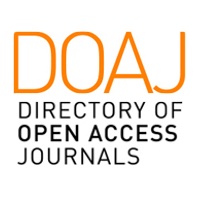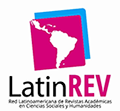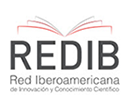Teacher training: methodological approaches in art and science
DOI:
https://doi.org/10.31639/rbpfp.v9i17.149Keywords:
Interdisciplinary graduation of Teachers, Science teaching, Art and ScienceAbstract
The paper presents discussions on methodological approaches in the areas of Science/Physics and Art/Visual Arts, and the focus is an interdisciplinary discussion. These discussions were developed in the course of a postdoctoral research Held in the Graduate Program of the State University Júlio de Mesquita, Campus of Bauru (UNESP-BAURU) The proposal was to work with in-service teacher training, which provided inter-disciplinary subsidies, especially in the areas of Art and Science. Therefore, we developed research with theoretical-philosophical and methodological foundation in these two areas of knowledge. The discussion of the theme arose from the questioning about the suggested interdisciplinary proposal for Basic Education observed in federal and state documents on the one hand and the disciplinary training of teachers on the other hand. Thus, as long as the teacher does not have a disciplinary formation, such action is required. From this problem we decided to provide an interdisciplinary experience to teachers and this initiative was taken from the course – “Art and Science on the Moon: interdisciplinary educational projects in teaching practice from the theme Moon”. For teachers who work in Basic Education. The course was developed in a partnership between University and State Secretary of Education - Board of Education from Bauru. During the course several discussions were developed, among them, the question of teaching methodology. In the approaching methodologies for distinct areas of knowledge we see significant differences and present some discussions about the theoretical basis and the methodological proposals that involve the teaching practice of these two areas of knowledge: Art and Science. Our objective was to contribute to the interdisciplinary formation of teachers from discussions and approximations between the teaching methodologies of the areas of Art (Visual Arts) and Science (Physics). We highlight among the theoretical references researchers from different areas such as: Japiassu (1976, 2006); Barbosa (2012); Carvalho and Gil-Perez (2011), Demo (2011), Farm (2012). The organization of the research was based on three moments: in the first one we present some discussions that involved methodological proposals for Science Teaching, then for Art Teaching, and at the end we outlined possibilities for approaching the teaching methodologies of these different areas of knowledge. We point out the need to develop discussions on different methodologies in teacher training courses as a way of subsidizing theoretical and practical foundation for interdisciplinary proposals in school education.
Downloads
References
AZEVEDO, Maria Cristina P. S. de. Ensino por investigação: problematizando as atividades em sala de aula. In: CARVALHO, Anna Maria Pessoa de (Org.). Ensino de ciências: unindo a pesquisa e a prática. São Paulo: Thomson, 2005. p. 19-33
BARBOSA, Ana Mae. A imagem no ensino da arte: anos 1980 e novos tempos. São Paulo: Perspectiva, 2012.
CARVALHO, Ana Maria; GIL-PEREZ, Daniel. Formação de professores de ciências: tendências e inovações.
(Coleção questões da nossa época) 10ª ed. São Paulo: Cortez, 2011.
DEMO, Pedro. Educar pela pesquisa. 9ª. ed. Campinas: Autores associados, 2011. (Coleção contemporânea)
FAZENDA, Ivani (Org.). A pesquisa em educação e as transformações do conhecimento. 12 ed. Campinas: Papirus, 2012. Coleção Práxis)
FERRAZ, M. H. S. de T.; FUSARI, M. F. de R. Metodologia do Ensino da Arte: fundamentos e proposições. 2. ed. (revista e ampliada) São Paulo: Cortez, 2009.
FERRAZ, Maria Heloisa C. de Toledo; FUSARI, Maria. F. de Rezende E. Metodologia do ensino de Arte. 2. ed. São Paulo: Cortez, 1999.
FLECK, Ludwik. Gênese e desenvolvimento de um fato científico. Trad. George Ott e Mariana Camilo de Oliveira. Belo Horizonte: Fabrefactum, 2010.
GOMBRICH, Ersnt Hans Josef. A História da Arte. 16ª. ed. Rio de Janeiro: LTC Editora, 1999.
JAPIASSU, Hilton. Interdisciplinaridade e patologia do saber. Rio de Janeiro: Imago, 1976.
JAPIASSU, Hilton. O sonho Transdisciplinar e as razões da Filosofia. Rio de Janeiro: Imago, 2006.
KUHN, Thomas S. A estrutura das revoluções científicas. 5. ed. São Paulo: Editora Perspectiva S.A, 1997.
KUHN, Thomas Samuel. A tensão essencial: estudos selecionados sobre tradição e mudança cientifica.Trad.
Marcelo Amaral Penna- Forte. São Paulo: UNESP, 2011
LABURU, C. E.; ARRUDA, S.M.; NARDI, R. Pluralismo metodológico no ensino de ciências. Revista Ciência e Educação. v. 9, n. 2, p. 247-260, 2003. Disponível em: <http://www.scielo.br/pdf/ciedu/v9n2/07.pdf>. Acesso em 25 de maio 2015.
MARTINS, M. C., PICOSQUE, G., GUERRA, M. T. T. Didática do Ensino da Arte: A Língua do Mundo - poetizar, fruir e conhecer arte. São Paulo: FTD, 1998.
MOREIRA, Antonio. Mapas conceituais e aprendizagem significativa. Instituto de Física. Porto Alegre: UFRGS, 2012. Disponível em: <http://www.if.ufrgs.br/~moreira/mapasport.pdf>. Acesso em 15 set. 2016.
OSINSKI. D. Arte, história e ensino: uma trajetória. São Paulo: Cortez, 2001.
PIAGET, J. Psicologia e Pedagogia. Rio de Janeiro: Forense Universitária, 1982.
SANTANA, Rodrigo; CLAUDINO, Rogério; GRANATO, Marcelo. Lugar Geométrico. Disponível em: http:// www2.ucg.br/design/da2/lugargeometrico.pdf>. Acesso em 15 de out de 2016.
SÃO PAULO (Estado) Secretaria da Educação. Currículo do Estado de São Paulo: Linguagens, códigos e suas tecnologias. Secretaria da Educação. Coordenação geral, Maria Inês Fini; coordenação de área, Alice Vieira. 2. ed. – São Paulo: SE, 2012a. Disponível em: <http://www.educacao.sp.gov.br/a2sitebox/arquivos/ documentos/237.pdf>. Acesso em 11 set de 2016.
SÃO PAULO (Estado). Secretaria da Educação. Currículo do Estado de São Paulo: Ciências da Natureza e suas tecnologias. Secretaria da Educação. Coordenação geral, Maria Inês Fini; coordenação de área, Luis Carlos de Menezes. – 1. ed. atual. – São Paulo: SE, 2012b. Disponível em: <http://www.educacao.sp.gov.br/ a2sitebox/arquivos/documentos/780.pdf>. Acesso em 11 de set de 2016.
SILVA, E. M. A.; ARAÚJO, C. M. A formação de professores para o ensino de artes no Brasil: qual o estado do conhecimento? Disponível em:<http://www.anped.org.br/reunioes/31ra/1trabalho/GE01-4927--Int.pdf>. Acesso em 15 de fev de 2012.
TERRAZAN, Eduardo A.; GAMA, Maria Eliza. Condicionantes para a formação continuada de professores em escolas de educação básica. Educação &Linguagem, São Paulo, n. 15., p. 161-192, jan./jun. 2007. Disponível em: file:///C:/Users/Master/Downloads/162-175-1-PB.pdf. Acesso em 20 ago. 2016.
WARD; Helen; RODEN, Judith; HEWLETT, Claire; FOREMAN, Julie. Ensino de Ciências. 2. ed. Porto Alegre: Artmed, 2010.
Downloads
Published
How to Cite
Issue
Section
License
Copyright belongs exclusively to the authors. The license rights used by the journal are the Creative Commons Attribution-NonCommercial 4.0 International (CC BY-NC-SA 4.0) license: sharing (copying and distribution of material in any medium or format) and adaptation (remixing), transformation and creation of material from the content are allowed.































